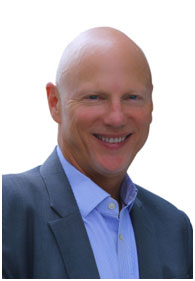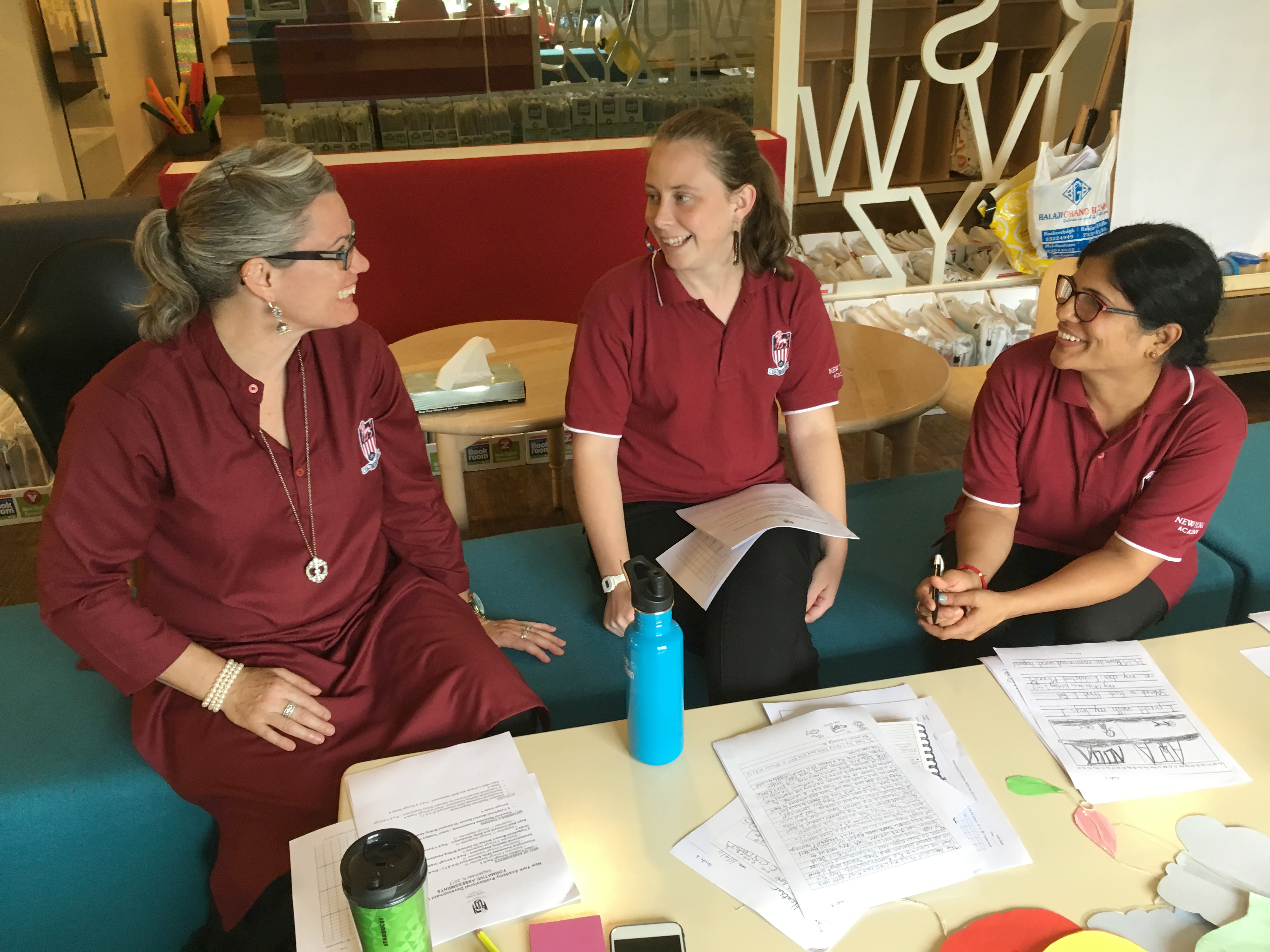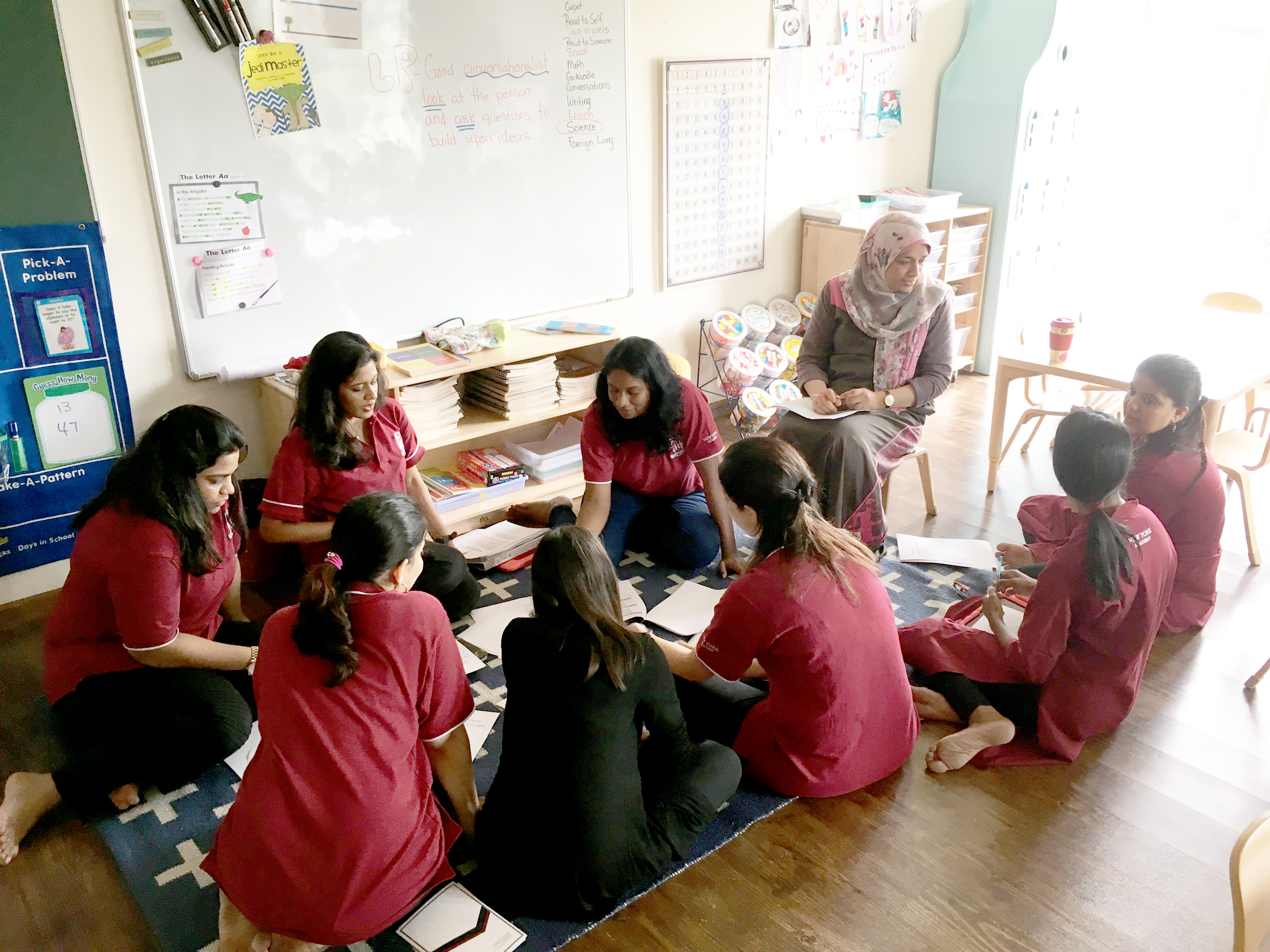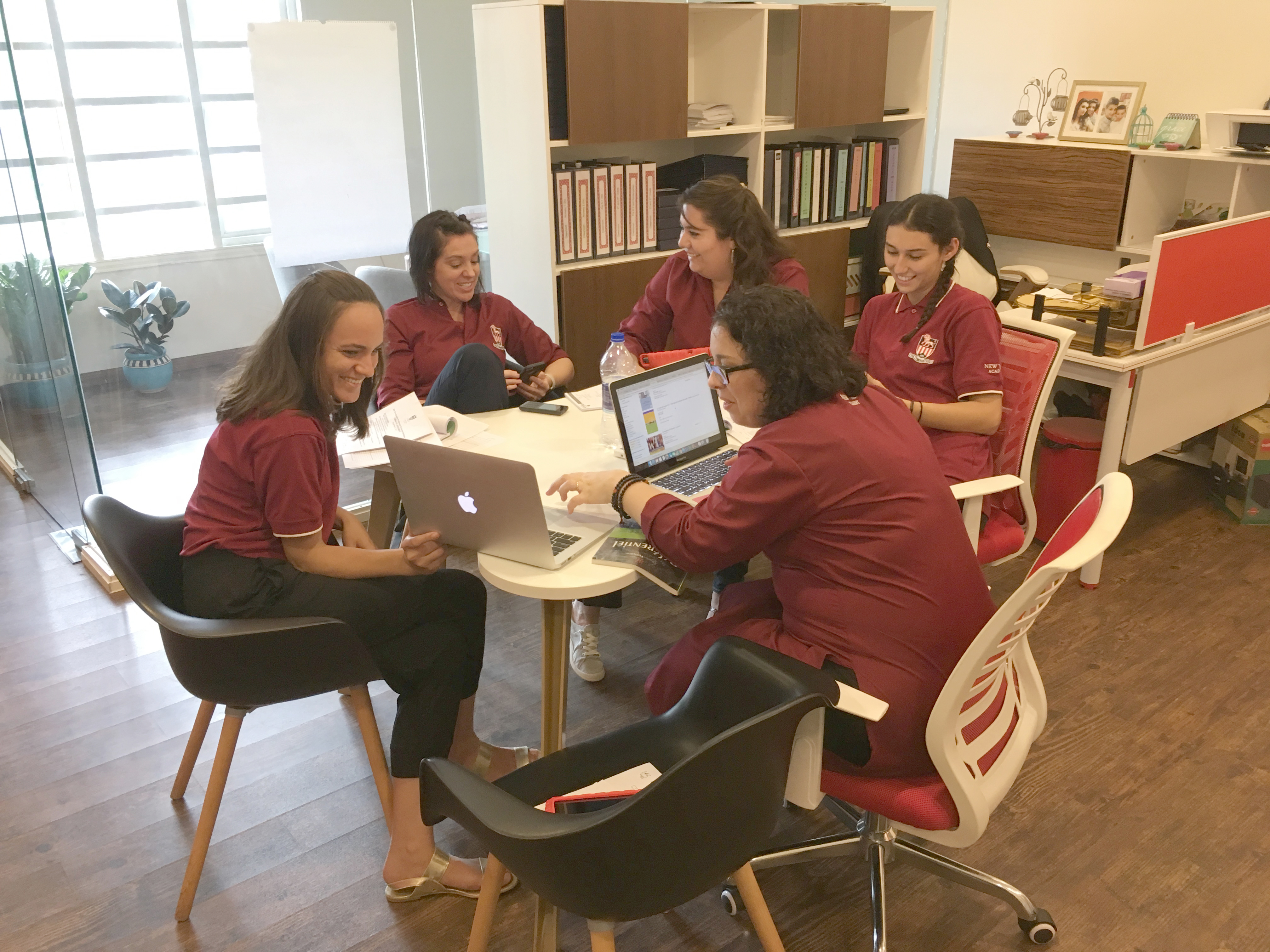 New York Academy embraces the concept of a Professional Learning Community. We know that the single most important factor for the academic, social, and emotional success of our students in school is the quality of teachers. We are committed to supporting the ongoing professional growth of our faculty.
New York Academy embraces the concept of a Professional Learning Community. We know that the single most important factor for the academic, social, and emotional success of our students in school is the quality of teachers. We are committed to supporting the ongoing professional growth of our faculty.
By definition, a Professional Learning Community, or PLC, is a group of educators that meets regularly, shares expertise, and works collaboratively to improve teaching skills and the academic performance and social/emotional growth of students.
At New York Academy, our teachers engage in Professional Learning Community collaboration meetings every Wednesday throughout the school year. Our faculty has been trained in PLC routines, protocols, and norms to strengthen the efficacy of their collaborative work.
Guiding Essential Questions of a PLC
- What do we want students to learn?
(Standards-Based Learning) - How will we know when students have learned?
(Assessment for Learning) - Which best practices are most effective to achieve the identified learning point?
(Research-based Learning Activity Aligned to Standards) - What interventions will we use when students have not learned?
(Differentiated Instruction – Scaffolding, More Time, More Practice) - What extensions will we use when students have learned?
(Differentiated Instruction – Higher Level Extended Learning)
Essential Norms of a PLC
- PLC meetings are for Professional Learning Community collaboration
- PLC meetings are scheduled regularly for one to two hours (weekly)
- Teachers come prepared to PLC meetings
- 90% of PLC collaboration time is on topic
- Minutes for each PLC meeting are taken for accountability
- Goals for each PLC meeting are set/communicated prior to the meeting
- Meeting goals center on student work, standards-based lessons, common formative assessments, and response to intervention
- Most often, a PLC meeting results in a planned lesson. Teachers then implement the lesson and return the following week to:
> Share success and challenges
> Analyze student work samples
> Adjust strategies to improve the lesson, and try again
Purpose of a PLC
- Ensure That All Students Learn
✔ Coordinated strategies that are
> Timely
> Intervention-based rather than remediation
> Directive (not an option) - Commitment to a Culture of Collaboration
✔ Systematic process by which teachers work together to analyze and improve their classroom practice - A Focus on Results
✔ Data driven differentiation to individualize instructionNew York Academy Teachers Engaged in PLC Collaboration

NYA Elementary Teachers engaged in a PLC to plan a formative assessment for writing.

NYA Nursery and Pre-School Teachers engaged in a PLC to plan a formative assessment
for developmental readiness.

NYA Specialist Teachers engaged in a PLC to plan a formative assessment
for their curriculums.

